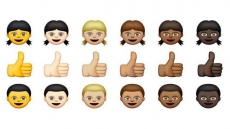SAN FRANCISCO — Microsoft saw a surprise drop in sales and profit during the first three months of the year, in a sign the tech giant is still trying to find its way in the post-PC era.
Wall Street was expecting the company to show positive results from a series of changes that CEO Satya Nadella has been making. Instead, revenue for the January-March quarter fell 6 per cent to $20.5 billion, while profit plunged 25 per cent to $3.76 billion.
Thursday's report came as other industry stalwarts reported their own struggles with seismic shifts in the way people use technology. On Monday, IBM reported its 16th consecutive quarter of revenue decline, as commercial customers abandon the once-standard model of buying programs to install on their own computers, and instead use more software online. A day later, Intel said it's cutting 12,000 jobs as fewer people buy PCs that run on Intel processors, opting instead for mobile devices such as phones and tablets.
But many analysts were expecting Microsoft to do better. While sales of personal computers have been sliding for the past four years, Nadella has been working to make Microsoft less dependent on revenue from its flagship Windows operating system, used mostly on PCs.
Microsoft said revenue from Windows software licenses declined 2 per cent during the quarter, after adjusting for currency fluctuations. That's better than the overall drop in PC shipments, which analysts at the Gartner research firm estimated at nearly 10 per cent.
But revenue from business software and Internet-based services, known as cloud computing, didn't grow as much as many analysts expected. In particular, Microsoft saw only a 3 per cent increase in revenue from its "Intelligent Cloud" business, where the company has invested heavily to help business customers run their operations on Microsoft's servers. The division's operating profit fell by 14 per cent.
In a few bright spots, the company said sales of its Surface tablet computers rose 56 per cent to $1.1 billion, while revenue from ads shown with results from its Bing search engine grew 55 per cent to $1.5 billion. After spending billions of dollars to develop Bing as a rival for Google's highly lucrative search business, Microsoft said the service started showing a profit last fall.

Some of that growth can be credited to Windows 10, which comes with a redesigned Web browser and Cortana, a Siri-like digital assistant. Both are designed to encourage more use of Bing.
Microsoft says Windows 10 is now running on more than 270 million machines, which analysts say is a good sign for software that was released only nine months ago. But some of that is the result of free upgrades offered to users of older Windows versions, rather than as software sales to PC manufacturers.
Under Nadella, the company has also released free versions of programs like Word and Excel for smartphones and tablets that run competing operating systems from Apple and Google. The company hopes to make money by charging users for extra features, and for related services like Skype messaging and online file storage.
Microsoft is also nudging users to change how they buy software. Subscriptions to its Office 365 service are growing rapidly. And because Microsoft delivers regular updates over the Internet, analysts say that should help the company sell extra features, particularly to business users.

But the turnaround is taking time to materialize. Microsoft said it earned 47 cents a share for the fiscal third quarter, or 62 cents after adjusting for one-time charges. Analysts surveyed by FactSet were expecting adjusted earnings of 64 cents a share and revenue of $22.1 billion.
Microsoft executives blamed higher-than-expected taxes for cutting into its profit for the quarter. "Overall, we had a solid quarter," Nadella told analysts on a conference call.





